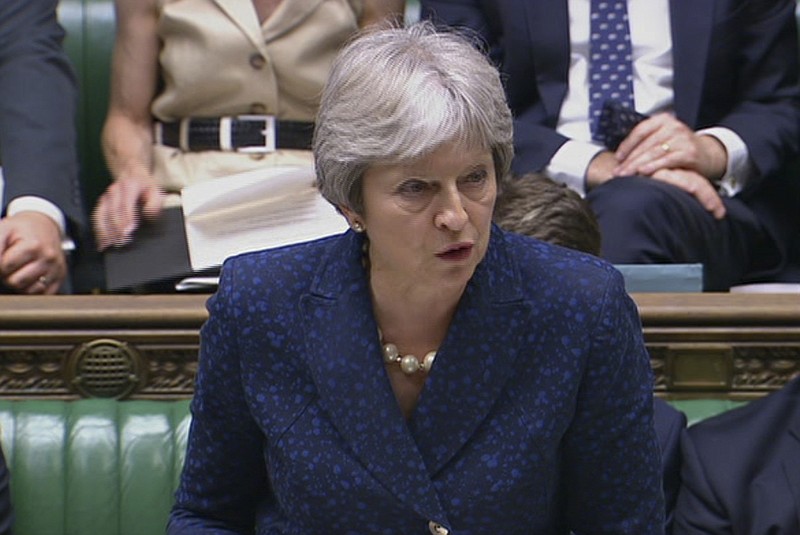Britain and the European Union appeared to be inching toward agreement on Brexit on Monday, but British Prime Minister Theresa May faced intensifying pressure from her divided Conservative government that could yet scuttle a deal.
Britain leaves the EU on March 29 - the first country ever to do so - but a deal must be sealed in the coming weeks to leave enough time for the U.K. and European Parliaments to sign off. May faces increasing domestic pressure over her proposals for an agreement following the resignation of another government minister last week.
The British leader had been hoping to present a draft deal to her Cabinet this week. But no Brexit breakthrough was announced Monday after talks between European affairs ministers. The two sides are locked in technical negotiations to try to bridge the final gaps in a move laden with heavy political and economic consequences.
May said talks were in their "endgame" but that negotiating a divorce agreement after more than four decades of British EU membership was "immensely difficult."
May told an audience at the Lord Mayor's Banquet in London that "we are working extremely hard, through the night, to make progress on the remaining issues in the Withdrawal Agreement, which are significant.
"Both sides want to reach an agreement," May said, though she added she wouldn't sign up to "agreement at any cost."
The main obstacle to a deal is how to keep goods flowing smoothly across the border between EU country Ireland and Northern Ireland in the U.K.
Both sides have committed to avoid a hard border with costly and time-consuming checks that would hamper business. Any new customs posts on the border could also re-ignite lingering sectarian tensions. But Britain and the EU haven't agreed on how to achieve that goal.
"Clearly this is a very important week for Brexit negotiations," Irish Foreign Minister Simon Coveney told reporters after the meeting in Brussels. "The two negotiating teams have really intensified their engagement There is still clearly work to do."
And Martin Callanan, a minister in Britain's Brexit department, said all involved were "straining every sinew to make sure that we get a deal but we have to get a deal that is right for the U.K., right for the EU and one that would be acceptable to the U.K. Parliament."
In Britain, pro-Brexit and pro-EU politicians alike warned May that the deal she seeks is likely to be shot down by Parliament.
Boris Johnson, a staunch Brexit supporter, wrote in a column for Monday's Daily Telegraph that May's plan to adhere closely to EU regulations in return for a trade deal and an open Irish border amounts to "total surrender" to the bloc.
The proposed terms are scarcely more popular with advocates of continued EU membership.
Former Education Secretary Justine Greening on Monday called May's proposals the "worst of all worlds," and said the public should be allowed to vote on Britain's departure again.
